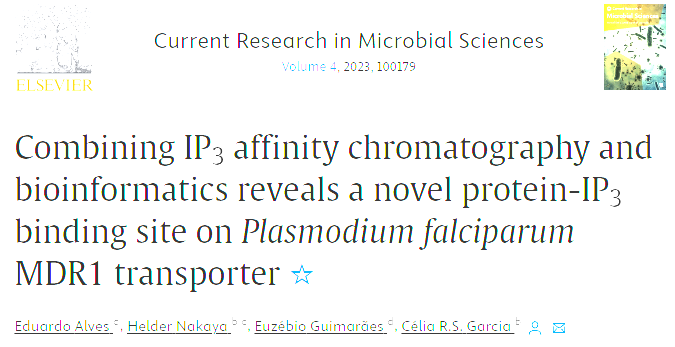Combining IP(3) affinity chromatography and bioinformatics reveals a novel protein-IP(3) binding site on Plasmodium falciparum MDR1 transporter.
Intracellular Ca2+ mobilization induced by second messenger IP3 controls many cellular events in most of the eukaryotic groups. Despite the increasing evidence of IP3-induced Ca2+ in apicomplexan parasites like Plasmodium, responsible for malaria infection, no protein with potential function as an IP3-receptor has been identified. The use of bioinformatic analyses based on previously known sequences of IP3-receptor failed to identify potential IP3-receptor candidates in any Apicomplexa. In this work, we combine the biochemical approach of an IP3 affinity chromatography column with bioinformatic meta-analyses to identify potential vital membrane proteins that present binding with IP3 in Plasmodium falciparum. Our analyses reveal that PF3D7_0523000, a gene that codes a transport protein associated with multidrug resistance as a potential target for IP3. This work provides a new insight for probing potential candidates for IP3-receptor in Apicomplexa
Authors
Alves E, Nakaya H, Guimaraes E, Garcia CRS.
External link
Publication Year
Publication Journal
Associeted Project
Microbiology or Immunology
Lista de serviços
-
Is the gut microbiome key to modulating vaccine efficacy?Is the gut microbiome key to modulating vaccine efficacy?
-
Toxicogenomic and bioinformatics platforms to identify key molecular mechanisms of a curcumin-analogue DM-1 toxicity in melanoma cells.Toxicogenomic and bioinformatics platforms to identify key molecular mechanisms of a curcumin-analogue DM-1 toxicity in melanoma cells.

